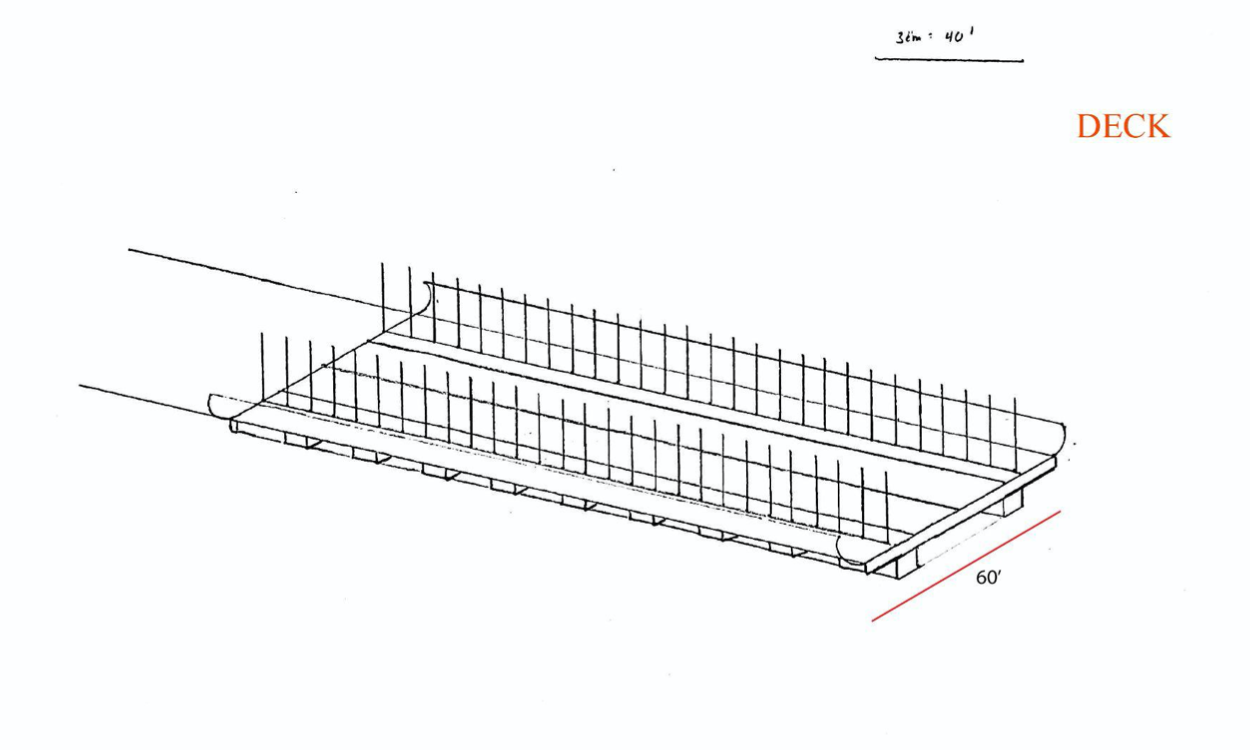Client
Concerned Citizens of The City of Evanston
Course
Structural Art at Northwestern University, Spring 2022
Lincoln Street Bridge
Problem
The City of Evanston has been exploring options for a replacement to the Lincoln Street Bridge over the North Shore Canal as it has been in use for longer than intended. In addition, maintenance of the bridge has declined.
Picture Credits: Me
Rusting Support
Landscaping in Disrepair
Ideation
Team looked to local aesthetic identities, historical works, and modern approaches to public space for inspiration.
Image Credits (From Top to Bottom, Left to Right):
Miami-Dade County, Wikipedia, Google Maps, Erik Anderson
Design Rationale
By incorporating the Structural Art principles of symbolic, social, and scientific advancement the proposed bridge design aims to address the issues faced by the Lincoln Street Bridge. It strives to provide a functional and aesthetically pleasing solution that enhances the beauty of the neighborhood and enriches the lives of its residents. With a focus on community-building and innovative design elements, the proposed bridge aspires to become a symbol of progress for Evanston, serving as a testament to the city's commitment to modernity, inclusivity, and recreation.
The design prioritizes community-building and social engagement. Steps beneath the bridge allow pedestrians to gather at the North Shore Canal. A paved foot trail fosters connection to the landscape. A two-way bicycle lane improves safety for cyclists and pedestrians, encouraging active transportation. Pedestrian lanes with rail protection create space for people to lounge, and the installation of benches atop the bridge provides additional resting spots. These components promote interaction, recreation, and a sense of community, enriching the cultural fabric of Evanston.
Social
Symbolic
The proposed bridge design aims to symbolize new technological innovation in Evanston and serve as a unique mark of the town. The design incorporates cutouts in steel panes as inspired by the columns on the Wilmette-Evanston Border, bringing in tradition, while taking a modern approach.
Scientific
The proposed single-tower self-anchored suspension bridge design with splayed walkways effectively spans the canal. The positioning of the suspension tower base at the water's edge reduces the main span length and accounts for the canal's tilt. Steel is chosen for the tower's load-bearing components, ensuring structural integrity. The deck construction, consisting of roadway, steel pane, x-bracing, and main support system, enhances stability and rigidity. Asphalt for the road and concrete for the sidewalks provide durable and functional surfaces.












